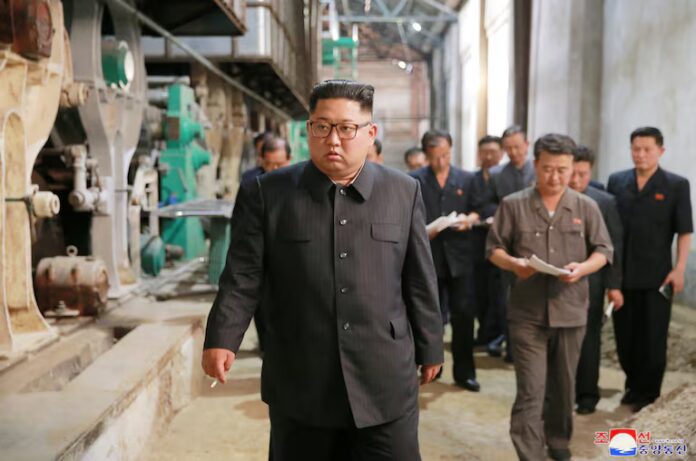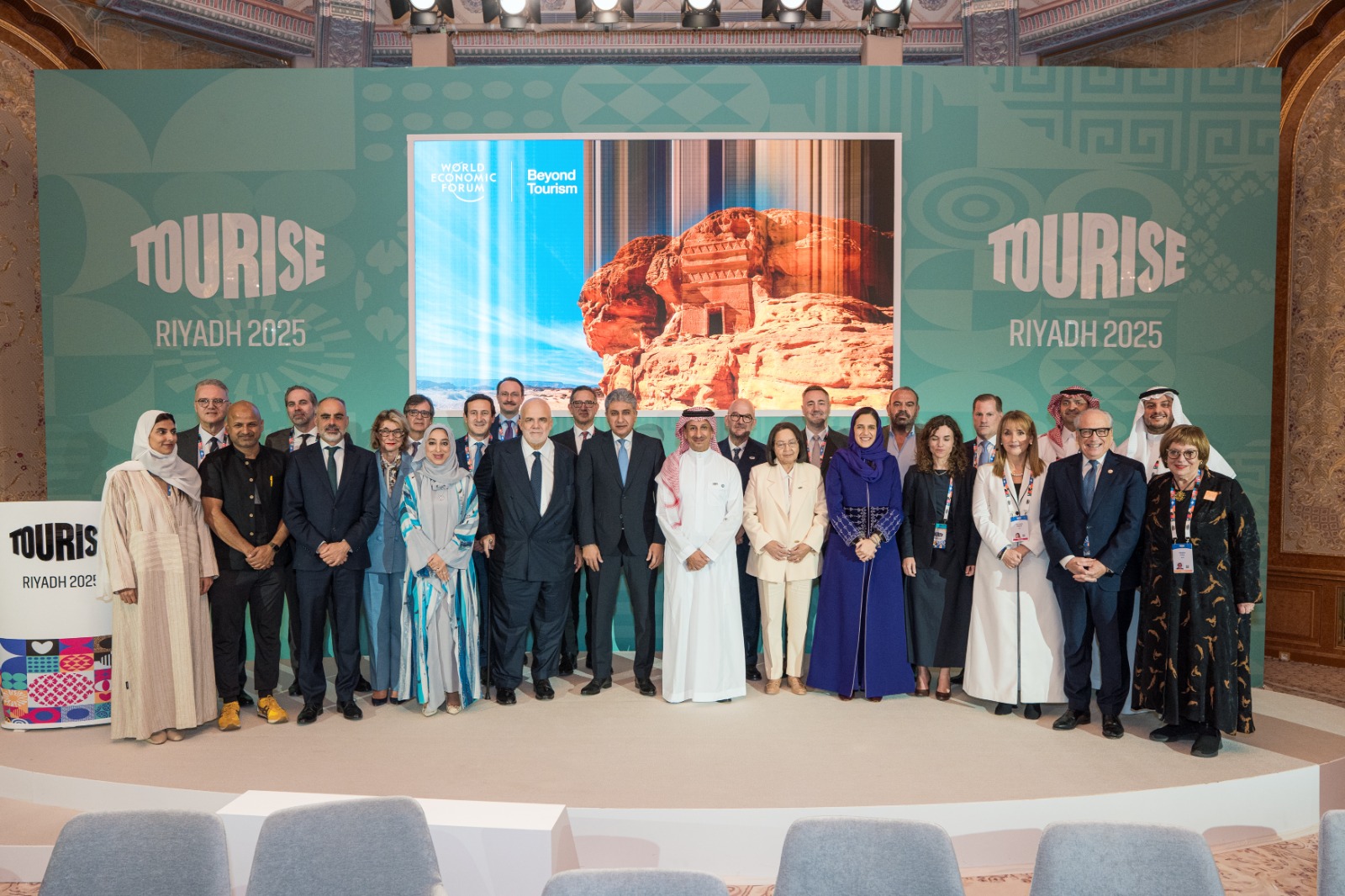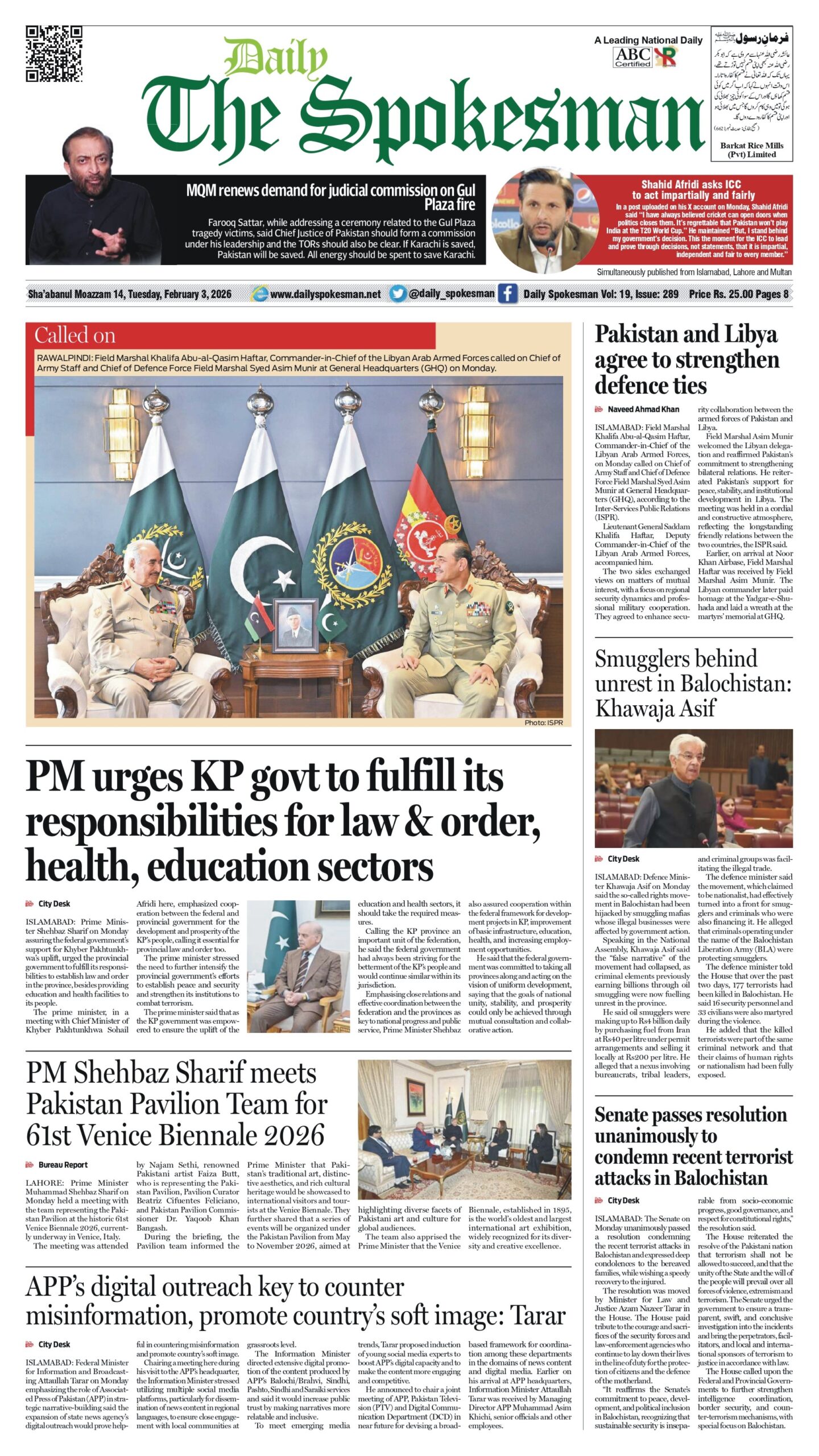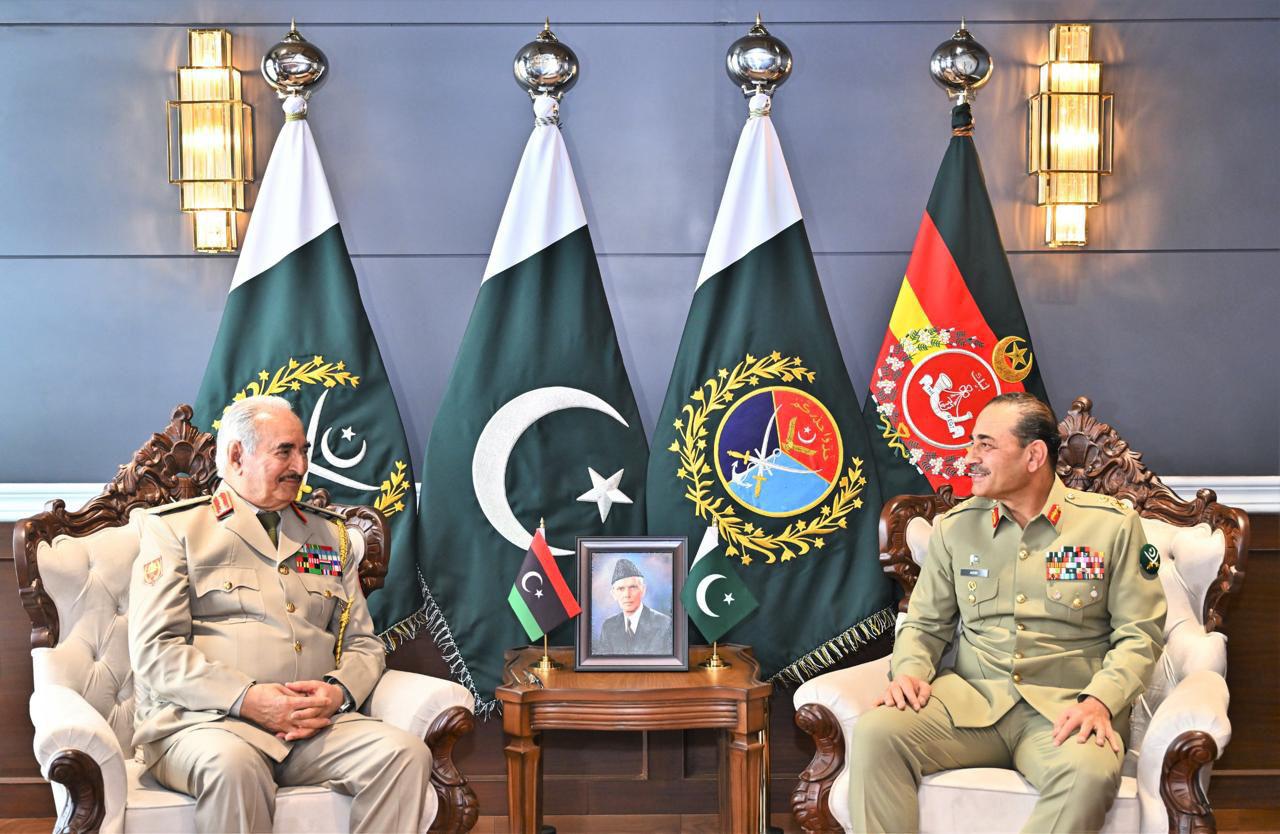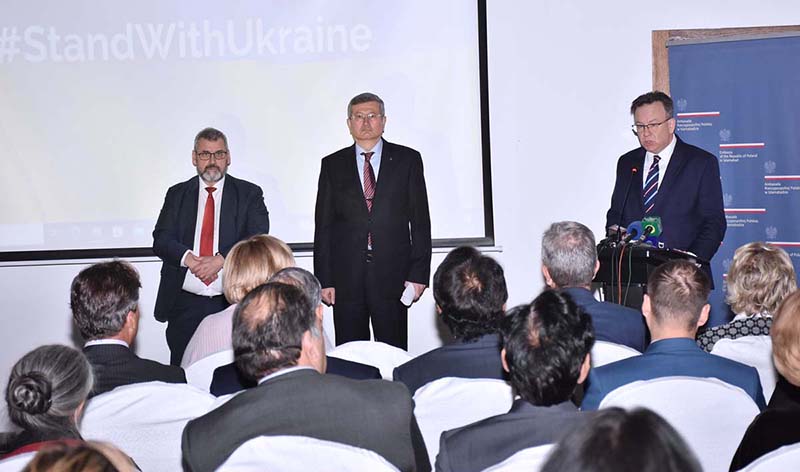
Timeline of the war in Ukraine & migration crisis
Naveed Ahmad Khan
The Ambassador of the Republic of Poland, Maciej Pisarski accompanied by the Ambassador of Ukraine, Markiian Chuchuk, and the Ambassador of the European Union, Dr. Riina Kionka addressing a joint event of solidarity with Ukraine in the Embassy of Poland, commemorating the first year of its resistance to the Russian invasion.
The event was attended by a large number of diplomats to show solidarity with Ukraine. Media and human rights activists were also present on the occasion. The ambassadors of Poland, the European Union, and Ukraine delivered their speeches. The main motive was solidarity with Ukraine fighting for freedom. The Embassy of Ukraine, with the support of the Polish Embassy, also presented a photo exhibition depicting the atrocities of Russian military actions.
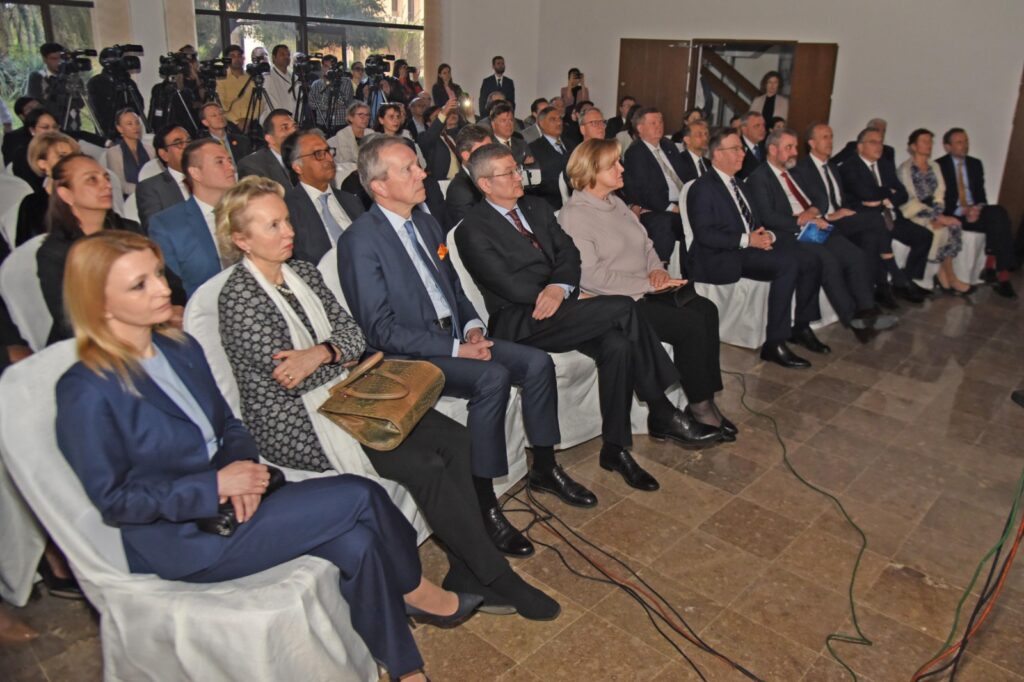 The event aimed to raise awareness of the war in Ukraine. It was linked with the achievements of Polish-Ukrainian relationships. Since the beginning of the Russian invasion on 24 February 2022, Poland has received the greatest number of migrants from Ukraine. More than 3.8 million people from all over Ukraine crossed the Ukrainian-Polish border, and 1.1 million registered for temporary protection in Poland, most of them women and children. More than 1.9 million of the Ukrainian migrants, especially those from the western and central parts of the country, have already gone back home; meanwhile, some 27% of the Ukrainians declare they will stay in Poland even if the war ends.
The event aimed to raise awareness of the war in Ukraine. It was linked with the achievements of Polish-Ukrainian relationships. Since the beginning of the Russian invasion on 24 February 2022, Poland has received the greatest number of migrants from Ukraine. More than 3.8 million people from all over Ukraine crossed the Ukrainian-Polish border, and 1.1 million registered for temporary protection in Poland, most of them women and children. More than 1.9 million of the Ukrainian migrants, especially those from the western and central parts of the country, have already gone back home; meanwhile, some 27% of the Ukrainians declare they will stay in Poland even if the war ends.
This unprecedented migration crisis has been managed jointly by Poland’s non-governmental organizations, society, and the state. The NGOs have created an extensive system of assistance (humanitarian aid at the border, accommodation placement, childcare, etc.). About half of the migrants found free accommodation in the homes of Poles or Ukrainians living in Poland. Two weeks after the start of the escalated invasion of the Russo-Ukrainian war, the Polish parliament adopted a special law that gives Ukrainian migrants the right to work as well as free access to health care and education. They may also benefit from social assistance on the same terms as Polish citizens.
Ukrainian refugees who decide to stay in Poland might not be covered by social aid programs after a certain point, but they will be able to contribute to the development of their new homeland—including participating actively in Polish politics. Some European countries, like Sweden, already allow non-EU migrants who live there to take part in local elections. According to the 1990 Polish law on local self-government, a local self-governing community is formed by all its inhabitants. This should include foreigners living there as well—in this case, the Ukrainians. As for parliamentary and presidential elections, the situation is more complicated, as according to the 1997 constitution MPs and the head of state are elected by the citizens of the Republic of Poland only. Polish citizenship can be obtained either by civil acknowledgment—with foreigners needing to meet several criteria, including several years’ residence in Poland and knowledge of the Polish language—or through a decision of the Polish president to grant citizenship. In the latter case, the president is not limited by any conditions and may grant Polish citizenship to any foreigner. If the current political situation allows it, this could be the easiest way to fully integrate new Ukrainian permanent residents into Polish society.

